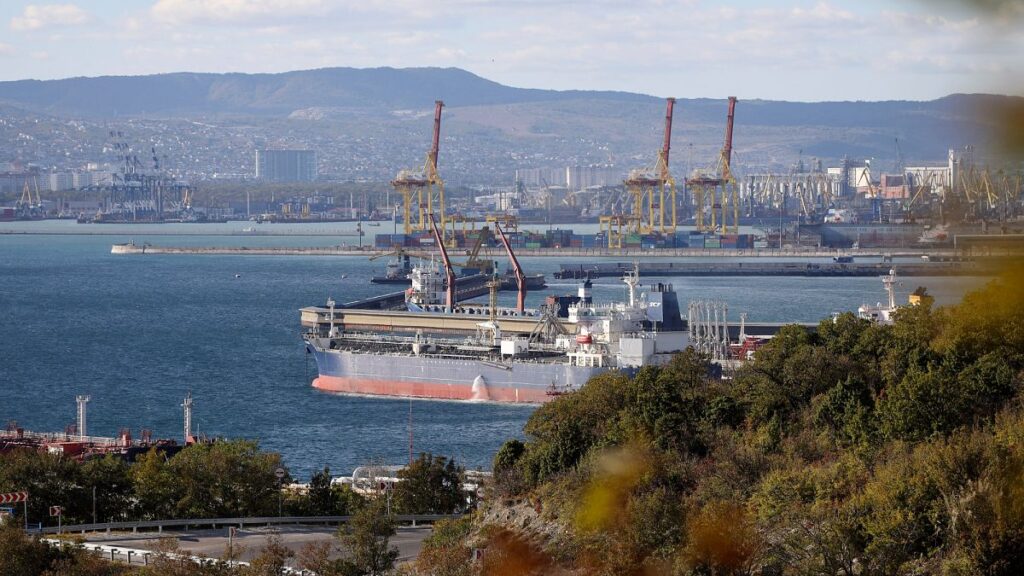Published on
Sanctions against Russia, North Korea, and Iran will continue to fail unless the global maritime flagging system is structurally reformed, according to a new report from the Royal United Services Institute (RUSI), a London-based think tank.
The study highlights the increasing reliance of Russia and Iran on evasive tactics, such as hiding ship ownership, disabling identification systems, registering with lenient flag states and flying false flags, in order to evade detection and enforcement.
“The ease with which vessels can obtain flags without scrutiny, avoid ownership transparency and escape enforcement actions has created the conditions for an entire parallel shipping ecosystem,” wrote the report’s authors, Gonzalo Saiz and Tom Keatinge.
Nearly 700 vessels were sanctioned in the past year alone, yet the vessel registration process remains a “critical weakness” in international sanctions enforcement. “Vessels removed from a registry for breaching sanctions can often secure a new flag in a matter of days,” RUSI’s Saiz and Keatinge noted.
Current measures have proven insufficient, as they mostly react to violations rather than prevent them, the report says. It adds that “diplomatic pressure, enhanced surveillance and national enforcement have yielded results, but such measures remain reactive and uncoordinated.”
Central to the problem is the so-called shadow fleet—vessels used by the Kremlin to sidestep the Western price cap on Russian oil, a key source of revenue for Moscow’s war in Ukraine.
RUSI analysts argue that maritime governance must be “radically improved,” warning that the International Maritime Organization (IMO) lacks the tools and authority to stop “flag hopping,” a practice where vessels switch national flags to obscure their identity and continue moving sanctioned oil and goods with impunity.
Reflagging is not new, but it has accelerated since Russia launched its full-scale invasion of Ukraine more than three years ago. “Numerous flag states allow registration with minimal due diligence, failing to verify beneficial ownership or assess the risk of sanctions,” the report found.
Some major registries, such as Panama and Liberia, have tightened oversight under diplomatic pressure. Since 2019, Panama has de-registered more than 650 vessels. But these efforts have been undermined by smaller registries—including Cameroon, Gambia, Honduras, Sierra Leone, and Tanzania—that continue to offer flags with little scrutiny.
The system is further weakened by private registration services, which often operate with little oversight and outside the territory of the flag state they represent.
According to RUSI, only systemic reform—supported by the Financial Action Task Force (FATF), the international anti-money laundering watchdog with the power to “name and shame” offenders—offers a credible path forward.
“If the phenomenon of the shadow fleet is not addressed urgently, it will continue to expand, drawing more vessels, cargoes and jurisdictions into a system that rewards opacity over compliance,” the report concluded.
Across several packages of sanctions, the EU has blacklisted a total of 444 vessels belonging to the shadow fleet. All of them are denied access to EU ports and EU services.
Read the full article here

